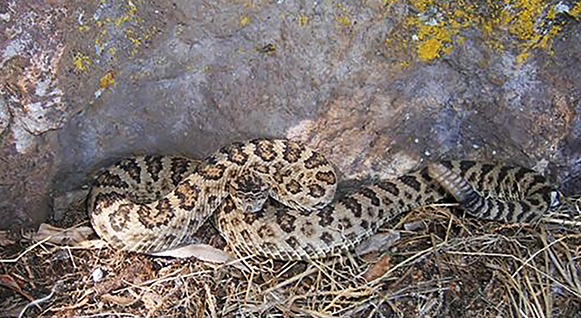
FAYETTEVILLE, Ark. – There are more species of rattlesnake slithering around western North America than previously thought.
That’s the conclusion of a new study conducted by University of Arkansas biologists Michael Douglas and Marlis Douglas and their colleagues at the University of Illinois at Urbana-Champaign and Western Kentucky University.
The researchers published their findings in the journal PLOS One.
The research team, using head shapes and genetic analyses, recommend that six groups of subspecies of the western rattlesnake be elevated to full species status, with the following names:
- Crotalus viridis, prairie rattlesnake
- Crotalus oreganus, northern Pacific rattlesnake
- Crotalus cerberus, Arizona black rattlesnake
- Crotalus helleri, southern Pacific rattlesnake
- Crotalus concolor, midget faded rattlesnake
- Crotalus lutosus, great basin rattlesnake
The scientific and standard English names will be submitted to the International Committee on Zoological Nomenclature for ratification.
The study has important implications for ecological conservation efforts across the United States, said Michael Douglas, professor of biological sciences and Twenty-First Century Chair in Global Change Biology.
“These snakes have been long been recognized by herpetologists as being demonstrably different, and in fact were designated as western rattlesnake subspecies in the first half of the 20th century,” Douglas said. “None are currently considered rare, but species designation allows them to gain certain legal protection, particularly within individual states.”
Marlis Douglas, associate professor of biological sciences and Bruker Chair of Life Sciences, said the genetic data were also evaluated to identify these snakes as individual species. The Douglases collaborated with Mark Davis, research scientist at the Illinois Natural History Survey, part of the Prairie Research Institute at the University of Illinois, and Michael Collyer, associate professor of biology at Western Kentucky University.
As part of his doctoral research, Davis collected data from nearly 3,000 western rattlesnakes available in natural history museums across the western United States.
In addition to genetic traits, the team examined head shape, which can vary drastically between different species of snakes and potentially reflect what kind of prey the snake prefers.
About the University of Arkansas: The University of Arkansas provides an internationally competitive education for undergraduate and graduate students in more than 200 academic programs. The university contributes new knowledge, economic development, basic and applied research, and creative activity while also providing service to academic and professional disciplines. The Carnegie Foundation classifies the University of Arkansas among only 2 percent of universities in America that have the highest level of research activity. U.S. News & World Report ranks the University of Arkansas among its top American public research universities. Founded in 1871, the University of Arkansas comprises 10 colleges and schools and maintains a low student-to-faculty ratio that promotes personal attention and close mentoring.
Contacts
Michael Douglas, professor
Department of Biological Sciences
479-575-6343, med1@uark.edu
Marlis Douglas, associate professor
Department of Biological Sciences
479-575-4176, mrd1@uark.edu
Chris Branam, research communications writer/editor
University Relations
479-575-4737, cwbranam@uark.edu